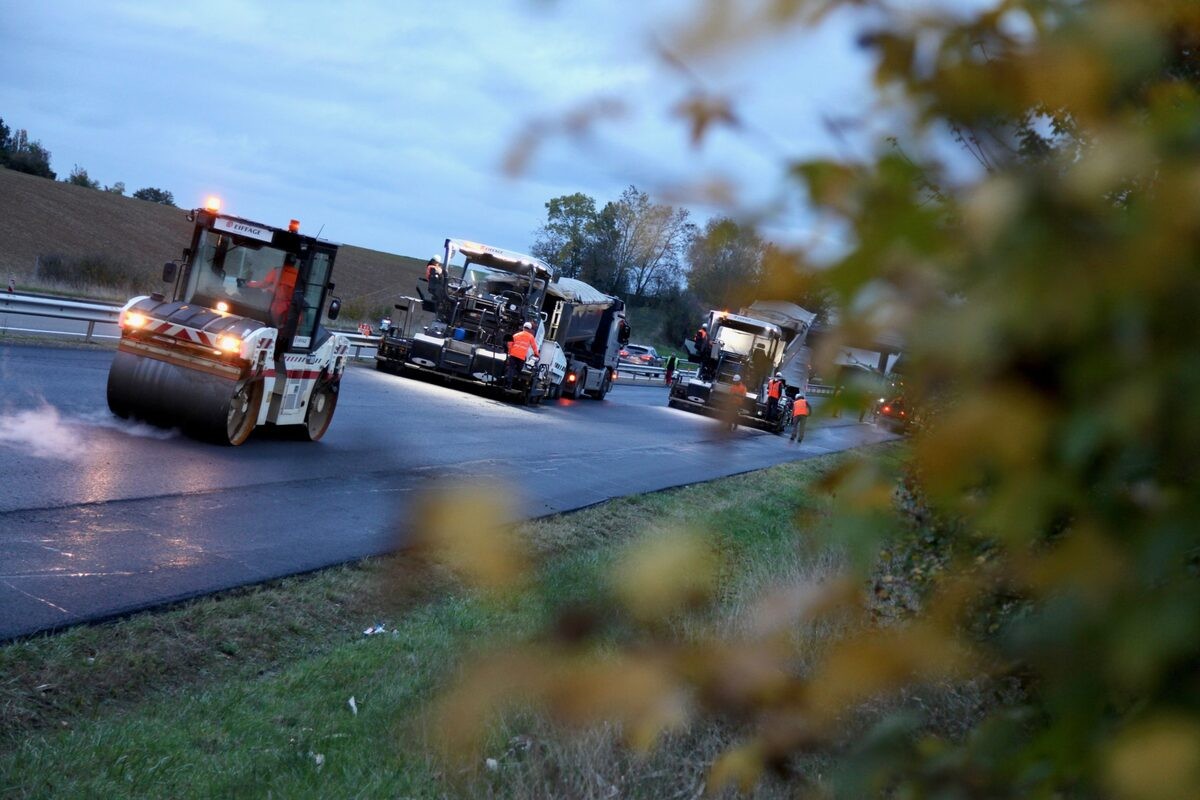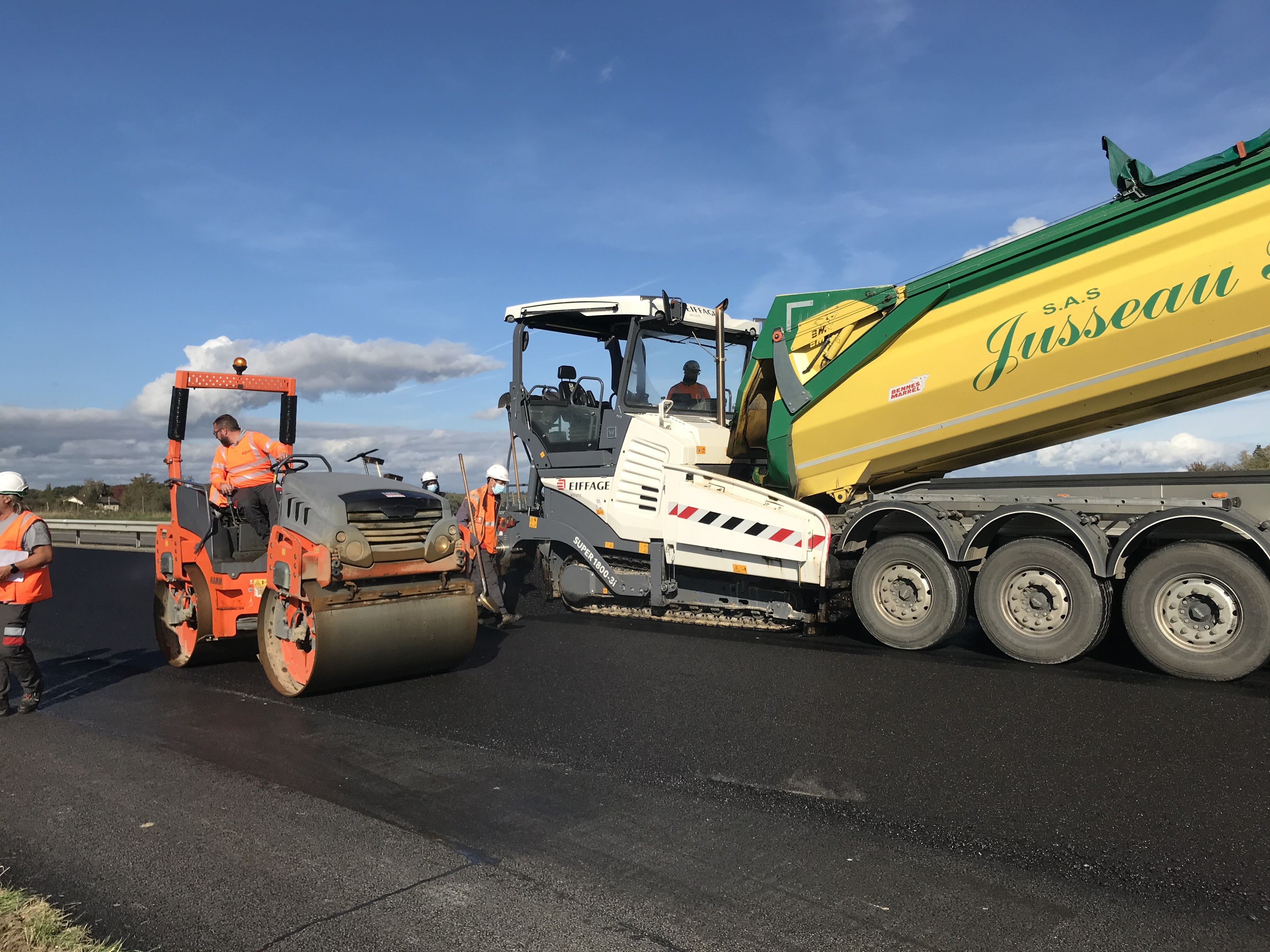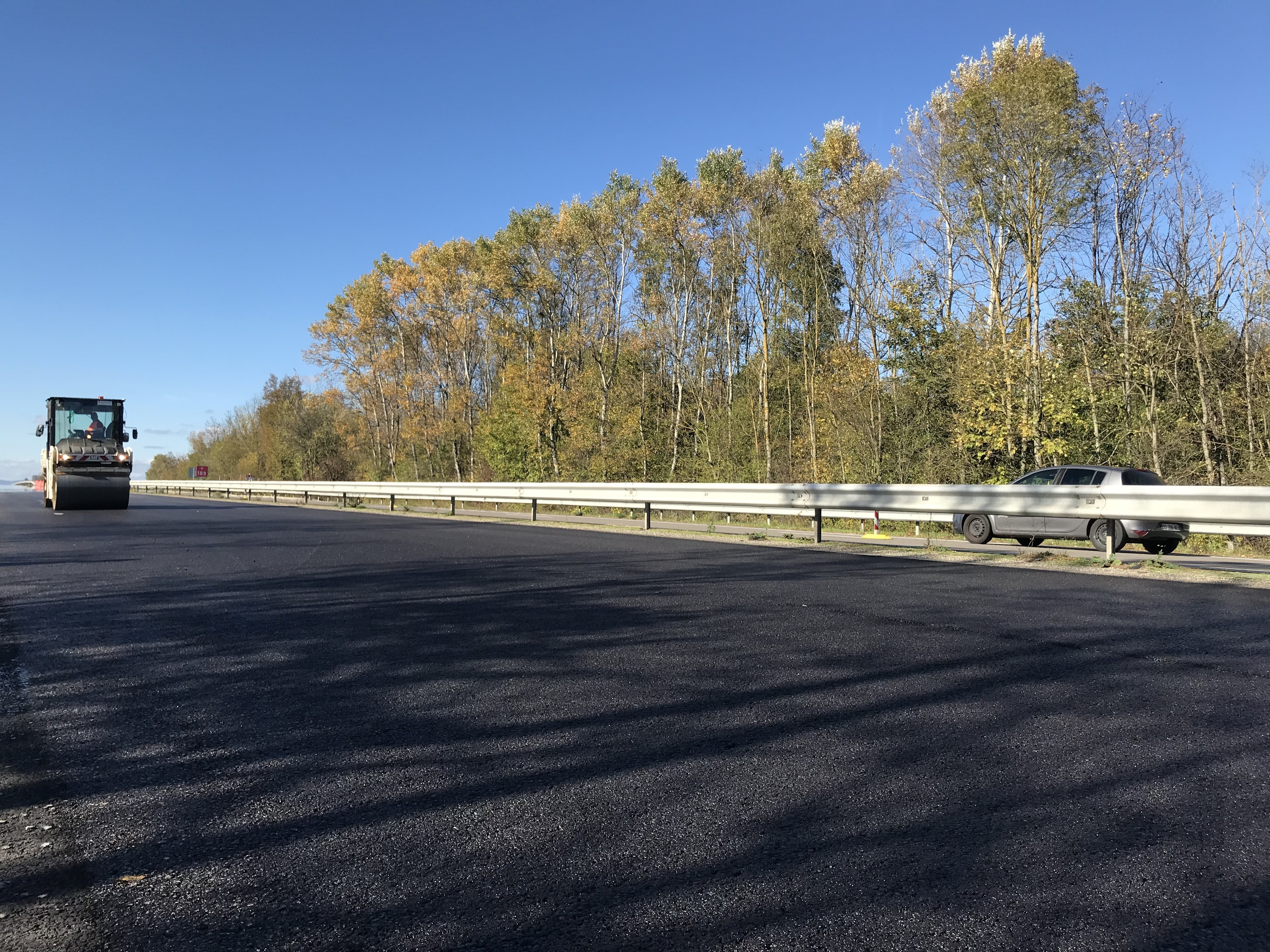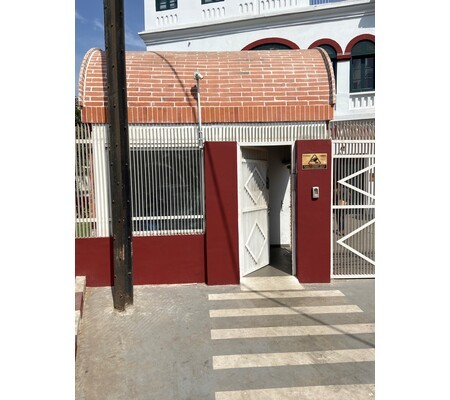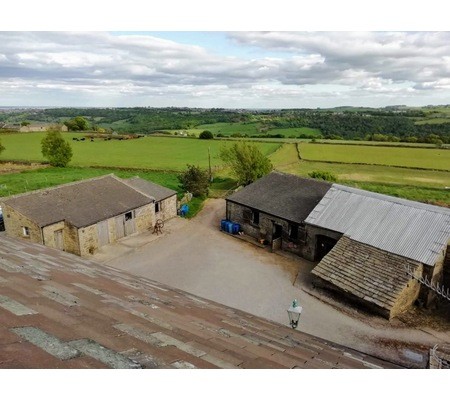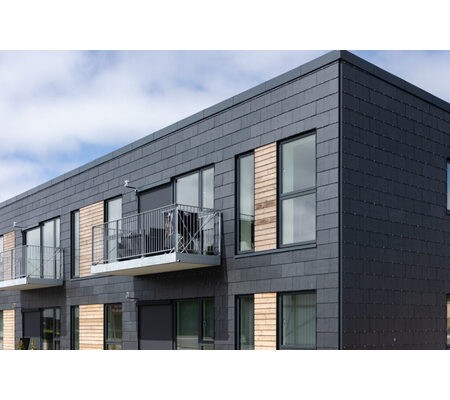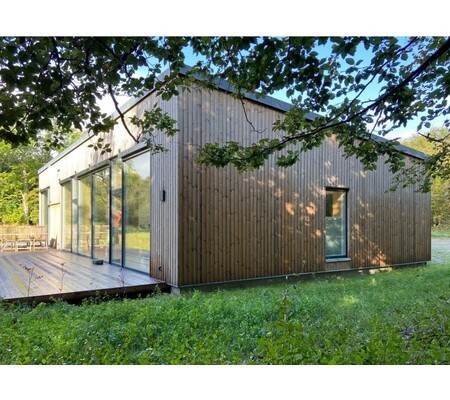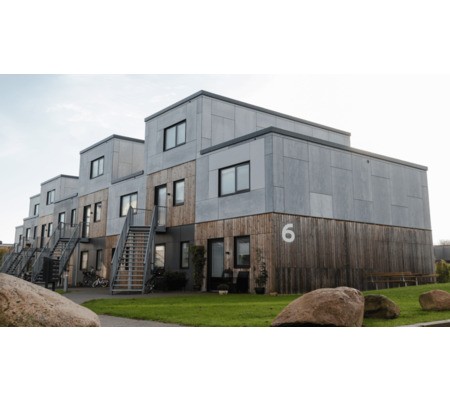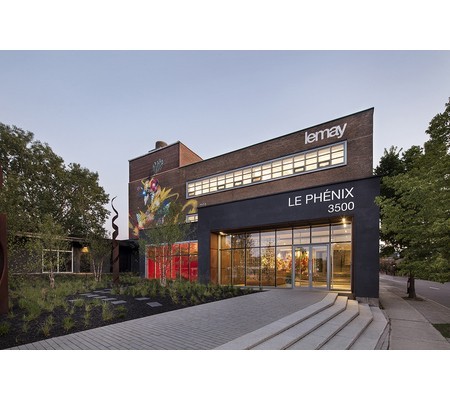Biophalt, a high performance vegetable asphalt coating
Last modified by the author on 09/03/2021 - 12:28
- Year of commitment : 2020
- Address 1 - street : AUTOROUTE A40 01380 SAINT CYR SUR MENTHON, France
- Diameter : 2000
- CO2 Impact : The carbon footprint of the renovation is neutral, the use of a bio-based binder allows carbon to be stored and thus offsets the emissions due to the implementation and industrial installations.
- Circular economy and waste management : Circular economy, Bio-based materials, Mechanical recycling
-
400 000 €
- Builder
Eiffage Route - Manager / Dealer
APRR
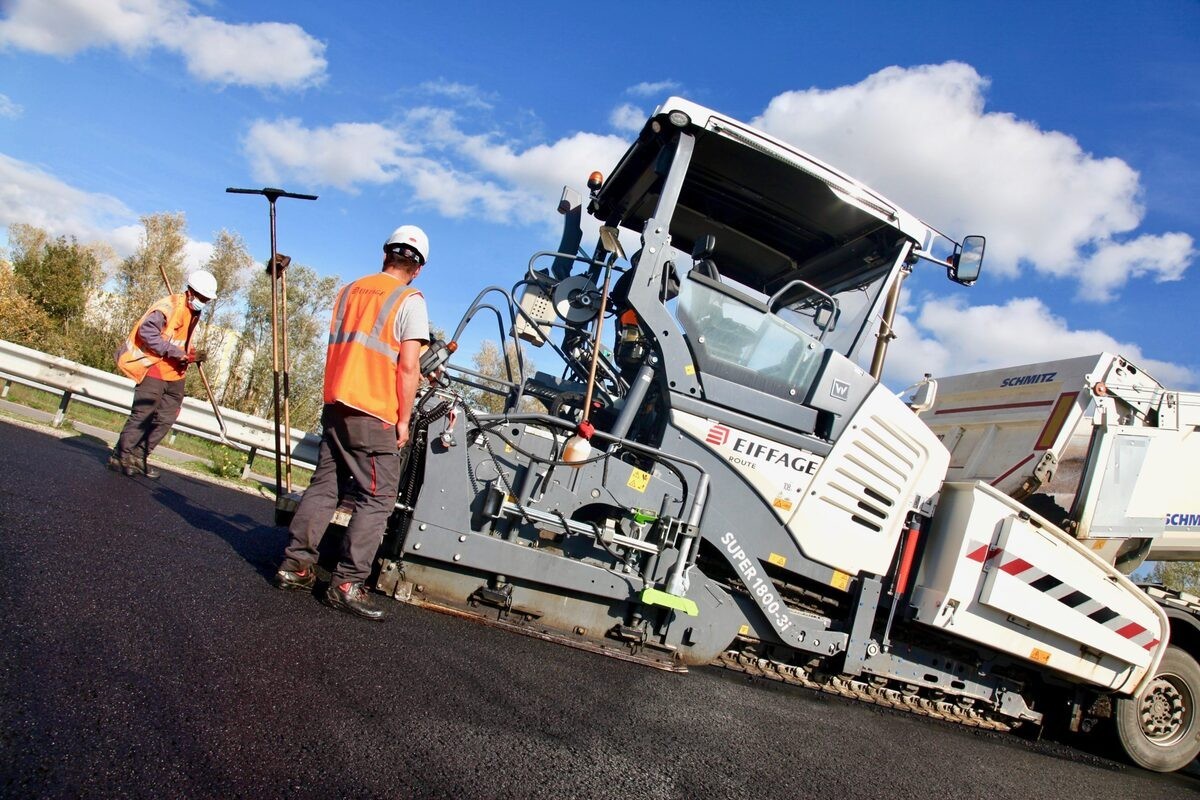
BIOPHALT, A HIGH-PERFORMANCE PLANT-BASED ASPHALT DEVELOPED BY EIFFAGE ROUTE AND TESTED BY APRR ON THE A40 MOTORWAY
Eiffage Route, the road subsidiary of the Eiffage Group's Infrastructures branch, attaches strategic importance to respect for the environment. At a time when the use of fossil fuels and resources of fossil origin must be reduced, the R&D teams at Eiffage Route, which has its own study and research centres in Ciry-Salsogne in the Aisne region and in Corbas near Lyon, have succeeded in substituting plant materials for bitumen and in regenerating materials using plant-based binders that are not derived from oil.
In this way, they have developed several eco-responsible asphalt mixes, including Biophalt®, a high-performance plant-based mix whose resistance is adapted to motorway traffic. Biophalt®, a biobased product, is the winner of the Routes & Rues 2019 call for innovation projects (CIRR) issued by IDRRIM and the French Ministry of Ecological Transition and Solidarity (MTES). It consists of asphalt mixes incorporating at least 30% recycled pavement materials and a plant-based binder that replaces traditional bitumen, which is of petroleum origin.
The process was initially tested on departmental or interurban sections, such as the Boulevard Louis XI in Tours (Indre-et-Loire). For the first time, in September 2020, it was implemented on a very busy road - the access road to the Mont Blanc tunnel and its 10,000 vehicles per day, 11% of which are heavy goods vehicles - at an altitude of almost 1,000 metres. This experiment will make it possible to verify Biophalt's ability to withstand heavy traffic as well as cycles of thermal variations (with more than 100 days of frost per year) and the most difficult winter maintenance conditions (salting/snowploughing). Thus, during the night of 18 to 19 September 2020, 265 metres of the Mont Blanc Motorway and Tunnel (ATMB) network were maintained using this asphalt mix, which was manufactured at Contamine-sur-Arve in the Haute-Savoie site of Eiffage Route. This section of the motorway will be monitored for the next five years.
https://app.eiffage.com/content/un-enrob-coresponsable-au-pied-du-mont-blanc-une-premi-re
This ecological innovation was also applied to the rehabilitation of 2.1 km of pavement on the A40 motorway near Vonnas (Ain) and on the RN 205 at the Chavants tunnel (Haute-Savoie), as illustrated by this video.
This innovative approach is a first on a motorway section in France. This experiment not only makes it possible to significantly reduce the environmental impact of this asphalt worksite but also to obtain a neutral carbon footprint. The process avoids the use of oil by using a binder from the paper industry, saves energy with an application temperature of around 130-140°C instead of the usual 160°C, and saves raw materials since 40% of the aggregates used are recycled from the planing of an old road.
A five-year monitoring protocol has also been put in place to qualify and certify the sustainable performance of the Biophalt® process and ensure that its characteristics evolve in the same way as a conventional motorway.
https://presse.aprr.com/chaussees-bas-carbone-biophalt/
https://www.lejsl.com/economie/2020/10/30/de-l-enrobe-vegetal-hautes-performances-teste-sur-l-a40
Progress Status
Delivered
Data Reliability
3rd part certified
Funding Type
Private
Website Enterprise / Infrastructure
https://presse.aprr.com/chaussees-bas-carbone-biophalt/Sustainable Development
Testimony / Feedback
The Eiffage Route teams applied the innovative product Biophalt® for APRR. Video testimonial from Philippe Guiguet, Director of Heritage, Infrastructures and Environment of APRR .
ATMB and Eiffage Route are experimenting with carbon-neutral pavements for the first time on the motorway. Testimonial from Louis Gauthier, Director of Development, Engineering and Innovation at ATMB.
Experience feedback from APRR on the Biophalt site of the A40 motorway. Testimony of Jean-Luc Dabert, technical infrastructure advisor of the APRR group in the Saône-et-Loire newspaper.
Governance
APRR
Private Company
Eiffage Route
Construction Industry
APRR
Private
APRR is a motorway concessionaire, as part of the renovation of part of its infrastructure called on Eiffage Route to renovate with strong ambitions in terms of sustainable development a portion of the A40 around St-Cyr-sur-Menthon.
The monitoring of the good performance of these renovations is carried out by Eiffage Route, APRR and academics who jointly form a scientific committee to monitor operations.
As such, the A40 site is a demonstrator of know-how and expertise in sustainable development for motorways.
The State has granted part of its motorway network to APRR, which maintains and operates the motorways through the collection of a toll from users. As such, the concessionaire orders and has renovation work carried out on its network.
Sustainable Solutions
- Air quality
- Circular economy
- Waste management
- Climate adaptation
- Low-carbon materials/ infrastructure
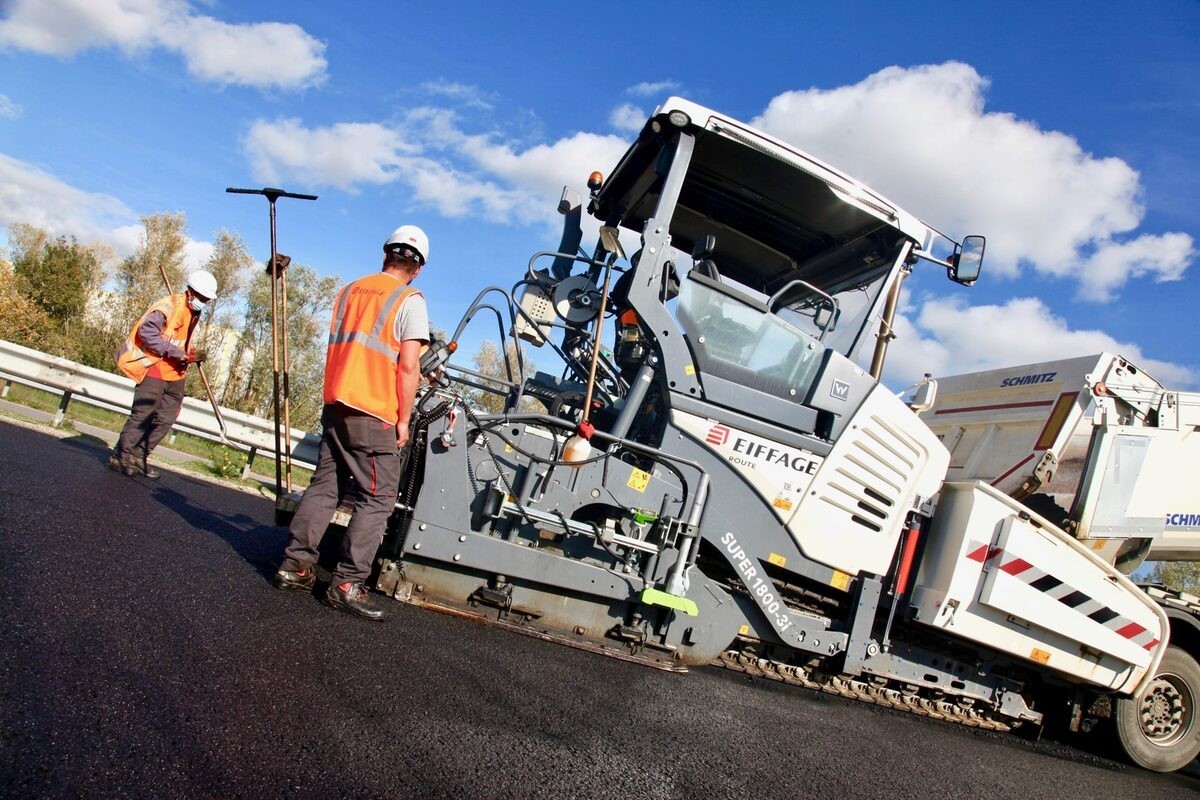
Biophalt
Working area
Biophalt® is a warm mix with high technical and environmental performance.
It is formulated with a new generation of plant binder from a by-product of French forestry.
While maintaining the performance of a classic asphalt, Biophalt® is the low-carbon asphalt par excellence thanks to the combination of several innovations:
- high recycling rate (≥ 30%),
- use of a vegetable binder with strong regenerating capacities, replacing the added bitumen,
- energy saving thanks to the lowered manufacturing temperature.
Biophalt® is manufactured in a traditional asphalt plant using a warm, energy-efficient process. It has the same field of use as a traditional asphalt. It is formulated in the laboratory in accordance with the performance required by the standards in force.
Biophalt® can be used as a base, binding or wearing course, without traffic restrictions and for different grain sizes.
Formula
The formula and the manufacturing process of Biophalt® are covered by a patent.
The components are derived from the pine industry and in particular from pitch, residues from the distillation of tall oil, which is hardly used today in industry.
Manufacturing and implementation
The manufacture of the Biophalt® binder uses a mixing process similar to that of polymer bitumens.
Biophalt® is used as a classic binder without modifying the industrial tool. The minimum coating and spreading temperatures are however slightly lower (respectively 130 and 115 ° C).
-80,40
- Air quality
- Circular economy
- Waste management
- Climate adaptation
- Low-carbon materials/ infrastructure
- Air quality
- Circular economy
- Waste management
- Climate adaptation
- Low-carbon materials/ infrastructure
Photo credit
Photo Credits: Eiffage Route / APRR
Reasons for participating in the competition(s)
Plusieurs points démontrent l'avantage de l'expérimentation de Biophalt sur ce chantier :
-La mise en place de matériaux biosourcés, qui ne sont pas en compétition avec l'industrie agroalimentaire, permettant de réduire l'impact des infrastructures sur le réchauffement climatique par le biais du stockage carbone contenu dans les matériaux.
-Le recyclage des chaussées existantes permettant de réduire la pression sur les ressources granulats issus de carrières
-Le recours à des enrobés tièdes nécessitant moins d'énergie pour être mis en oeuvre, facilitant également les conditions de vie des opérateurs en réduisant leur expositions aux fortes chaleurs et en supprimant la présence de fumée de bitume dans l'air
-Biophalt est lauréat du CIRR 2019 (Comité Innovation Routes et Rues)
Building candidate in the category





